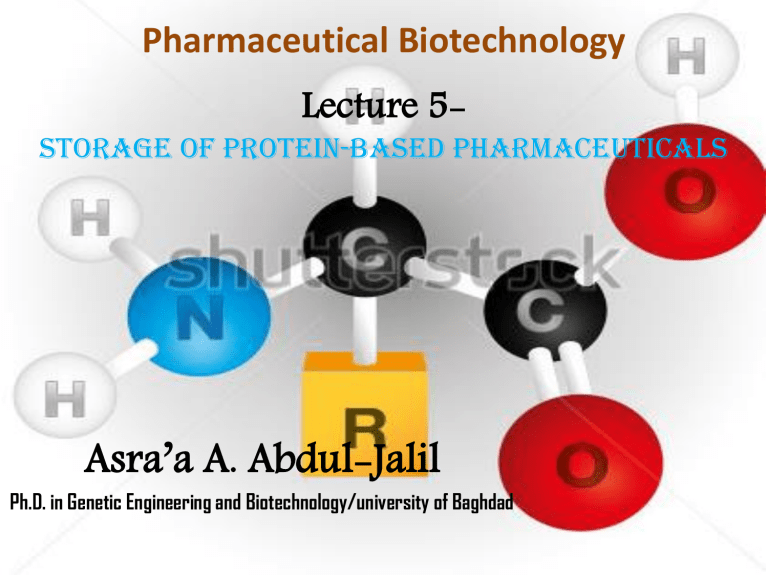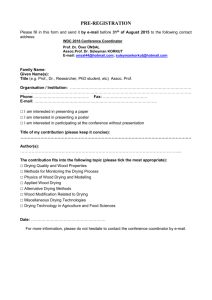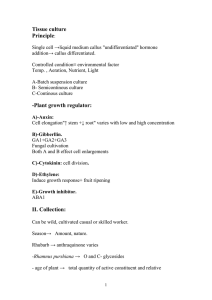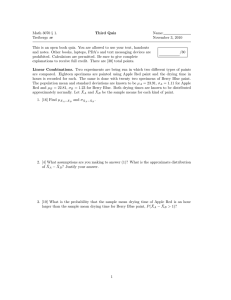
Pharmaceutical Biotechnology Lecture 5- Storage of Protein-Based Pharmaceuticals Asra’a A. Abdul-Jalil Ph.D. in Genetic Engineering and Biotechnology/university of Baghdad Storage of Protein-Based Pharmaceuticals Proteins can be stored as (i) an aqueous solution. (ii) freeze-dried form. (iii) in dried form in a compacted state (tablet). Freeze Drying of Proteins Proteins in solution often do not meet the preferred stability requirements for industrially produced pharmaceutical products (> 2 years), even when kept permanently under refrigerator conditions (cold chain). The abundant presence of water promotes chemical and physical degradation processes. Freeze Drying of Proteins Freeze drying may provide the requested stability. During freeze-drying water is removed through sublimation and not by evaporation. Freeze Drying of Proteins During freeze-drying water is removed through sublimation and not by evaporation. Three stages can be discerned in the freeze-drying process: (i) freezing step: The temperature of the aqueous system in the vials is lowered to – 15C° or lower have been reached. During the cooling stage, concentration of the protein and excipients occurs because of the growing ice crystal mass at the expense of the aqueous water phase. (ii) the primary drying step: Sublimation of the water mass in the vial is initiated by lowering the pressure. The water vapor is collected on a condenser, the supply of heat from the shelf to the vial, so the shelf is heated during this stage. The end of the primary drying stage is reached when product temperature and shelf temperature become equal. (iii)the secondary drying step: When all frozen or amorphous water that is non-protein and non-excipient bound is removed, the secondary drying step starts, In the secondary drying stage the temperature is slowly increased to remove “bound” water; the chamber pressure is still reduced, the secondary drying step ends when the product has been kept at 20C forsome time.






